Interested Parties: The Ideology of Writers and Readers of the Hebrew BIble
Published: Oct 2009
£17.50
There is a twin focus in this volume. The title of a keynote essay —'Why Is There a Song of Songs, and What Does It Do to You If You Read It?' —hints at it. The focus is equally on the ideologies of the writers of the Hebrew Bible, who brought the text into being, and on the ideologies of its readers, who are being shaped by the text at the same moment that they are shaping it in their own image. Uncovering the ideologies of writers are readers is the project of this book, calling for a step beyond the usual scholarly goal of understanding —to a practice of the art of critique.
Among the other chapters in this challenging book are: The Ten Commandments: Reading from Left to Right, Metacommentating Amos, Haggai's Temple, Constructed, Deconstructed and Reconstructed, David the Man: The Construction of Masculinity in the Hebrew Bible, Psalm 2 and the MLF (Moabite Liberation Front), God in the Pentateuch: Reading against the Grain. This is a reprint of the original 1995 edition.
Interested Parties: The Ideology of Writers and Readers of the Hebrew BIble
£17.50
There is a twin focus in this volume. The title of a keynote essay —'Why Is There a Song of Songs, and What Does It Do to You If You Read It?' —hints at it. The focus is equally on the ideologies of the writers of the Hebrew Bible, who brought the text into being, and on the ideologies of its readers, who are being shaped by the text at the same moment that they are shaping it in their own image. Uncovering the ideologies of writers are readers is the project of this book, calling for a step beyond the usual scholarly goal of understanding —to a practice of the art of critique.
Among the other chapters in this challenging book are: The Ten Commandments: Reading from Left to Right, Metacommentating Amos, Haggai's Temple, Constructed, Deconstructed and Reconstructed, David the Man: The Construction of Masculinity in the Hebrew Bible, Psalm 2 and the MLF (Moabite Liberation Front), God in the Pentateuch: Reading against the Grain. This is a reprint of the original 1995 edition.
The Dan Debate: The Tel Dan Inscription in Recent Research
Published: Aug 2009
£45.00
The Tel Dan inscription was found in three fragments on Tel Dan in northern Israel in 1993 and 1994. It is one of the most controversial textual archaeological finds since the discovery of the Dead Sea Scrolls. Most scholars agree that the text, which is written in Old Aramaic, is to be dated to the late ninth century BCE. It refers to a war between the Aramaeans and the northern kingdom of Israel. The text is apparently represented as authored by King Hazael of Damascus, and many scholars have discerned the names of the kings Jehoram and Ahaziah of Israel and Judah in the fragmented text.
There has been an extremely lively, and even heated, debate over both its language and its content, and it is time that a full survey of the debate should be undertaken. In his previous book, The Tel Dan Inscription: A Critical Investigation of Recent Research on its Palaeography and Philology (2006)--now distributed by Sheffield Phoenix Press--Hallvard Hagelia has examined those more technical aspects of the debate. In the present corollary volume, The Dan Debate: The Tel Dan Inscription in Recent Research, Hagelia analyses the debate on all the other more general aspects of the inscription. His own view is to support the joining of the fragments as it is done by the editors, Biran and Naveh, and to translate the controversial term bytdwd as 'House of David'.
The debate on the Tel Dan is interesting and significant in itself, but it can also be viewed as a case study of the wider debate between the so-called 'minimalists' and 'maximalists' in Hebrew Bible scholarship. In particular Hagelia's two books offer an notable exchange of views with George Athas's The Tel Dan Inscription: A Reappraisal and a New Interpretation (2003).
The Dan Debate: The Tel Dan Inscription in Recent Research
£45.00
The Tel Dan inscription was found in three fragments on Tel Dan in northern Israel in 1993 and 1994. It is one of the most controversial textual archaeological finds since the discovery of the Dead Sea Scrolls. Most scholars agree that the text, which is written in Old Aramaic, is to be dated to the late ninth century BCE. It refers to a war between the Aramaeans and the northern kingdom of Israel. The text is apparently represented as authored by King Hazael of Damascus, and many scholars have discerned the names of the kings Jehoram and Ahaziah of Israel and Judah in the fragmented text.
There has been an extremely lively, and even heated, debate over both its language and its content, and it is time that a full survey of the debate should be undertaken. In his previous book, The Tel Dan Inscription: A Critical Investigation of Recent Research on its Palaeography and Philology (2006)--now distributed by Sheffield Phoenix Press--Hallvard Hagelia has examined those more technical aspects of the debate. In the present corollary volume, The Dan Debate: The Tel Dan Inscription in Recent Research, Hagelia analyses the debate on all the other more general aspects of the inscription. His own view is to support the joining of the fragments as it is done by the editors, Biran and Naveh, and to translate the controversial term bytdwd as 'House of David'.
The debate on the Tel Dan is interesting and significant in itself, but it can also be viewed as a case study of the wider debate between the so-called 'minimalists' and 'maximalists' in Hebrew Bible scholarship. In particular Hagelia's two books offer an notable exchange of views with George Athas's The Tel Dan Inscription: A Reappraisal and a New Interpretation (2003).
Psalms
Published: May 2009
£15.00 – £35.00
The Book of Psalms is often seen as an anthology of prayers and hymns from which the reader may extract a selection as need or interest dictates. However, a recent development in Psalms scholarship has been a discussion of whether the collection of psalms has some overall structure. Is the whole of the Book of Psalms greater than the sum of its individual parts? This commentary argues that it is and presents a continuous reading of the Book of Psalms.
Moreover, the long-standing tradition, found within both Judaism and Christianity, of associating the psalms with David is used as a reading strategy. In this volume, the Psalms are presented sequentially. Each has its place in the collection but thirty-five are treated at greater length. They are read, at least in the first two books (Psalms 1 —72), as if they were David's words. Beyond that a more complex and developed association between David and the Psalms is demanded. David becomes a figure of hope for a different future and a new royal reign reflecting the reign of Yahweh. Throughout, David remains a model of piety for all who seek to communicate with God in prayer. It is in the light of this that later disasters in the life of Israel, especially the Babylonian Exile, can be faced. In the Book of Psalms, the past, in terms of both David's life and the history of Israel, is the key to future well-being and faithfulness.
Psalms
£15.00 – £35.00
The Book of Psalms is often seen as an anthology of prayers and hymns from which the reader may extract a selection as need or interest dictates. However, a recent development in Psalms scholarship has been a discussion of whether the collection of psalms has some overall structure. Is the whole of the Book of Psalms greater than the sum of its individual parts? This commentary argues that it is and presents a continuous reading of the Book of Psalms.
Moreover, the long-standing tradition, found within both Judaism and Christianity, of associating the psalms with David is used as a reading strategy. In this volume, the Psalms are presented sequentially. Each has its place in the collection but thirty-five are treated at greater length. They are read, at least in the first two books (Psalms 1 —72), as if they were David's words. Beyond that a more complex and developed association between David and the Psalms is demanded. David becomes a figure of hope for a different future and a new royal reign reflecting the reign of Yahweh. Throughout, David remains a model of piety for all who seek to communicate with God in prayer. It is in the light of this that later disasters in the life of Israel, especially the Babylonian Exile, can be faced. In the Book of Psalms, the past, in terms of both David's life and the history of Israel, is the key to future well-being and faithfulness.
Journal of Greco-Roman Christianity and Judaism 5 (2008)
Published: Apr 2009
£80.00
This is the fifth volume of the hard-copy edition of a journal that has been published online (www.jgrchj.net) since 2000. Volume 1 was for 2000, Volume 2 was for 2001 —2005, Volume 3 for 2006, Volume 4 for 2007, and Volume 5 for 2008. As they appear, the hardcopy editions will replace the online materials. The scope of JGRChJ is the texts, language and cultures of the Graeco-Roman world of early Christianity and Judaism. The papers published in JGRChJ are designed to pay special attention to the 'larger picture' of politics, culture, religion and language, engaging as well with modern theoretical approaches.
Journal of Greco-Roman Christianity and Judaism 5 (2008)
£80.00
This is the fifth volume of the hard-copy edition of a journal that has been published online (www.jgrchj.net) since 2000. Volume 1 was for 2000, Volume 2 was for 2001 —2005, Volume 3 for 2006, Volume 4 for 2007, and Volume 5 for 2008. As they appear, the hardcopy editions will replace the online materials. The scope of JGRChJ is the texts, language and cultures of the Graeco-Roman world of early Christianity and Judaism. The papers published in JGRChJ are designed to pay special attention to the 'larger picture' of politics, culture, religion and language, engaging as well with modern theoretical approaches.
With Wisdom as a Robe: Qumran and Other Jewish Studies in Honour of Ida Fröhlich
Published: Nov 2008
£60.00
Professor Ida Fröhlich, Professor of Hebrew Studies and Ancient Near Eastern History in the Pázmány Péter Catholic University, Budapest, is a celebrated scholar who has been in the forefront of the remarkable development of Hebrew and Jewish studies in recent decades in Hungary. Among her important publications are 'Time and times and half a time': Historical Consciousness in the Jewish Literature of the Persian and Hellenistic Eras (1996), and, more recently, the first translation of the corpus of the Dead Sea Scrolls into Hungarian. Her current major project is, in collaboration with a group of younger scholars, to prepare a Hungarian translation of all the apocryphal and pseudepigraphical materials.
In this very substantial volume, presented to her on the occasion of her sixtieth birthday, the essays of 38 international scholars are arranged in three sections: (1) Hebrew Bible / Old Testament, (2) Apocrypha —Pseudepigrapha and Qumran, and (3) Jewish Studies / Christian Interpretation.
With Wisdom as a Robe: Qumran and Other Jewish Studies in Honour of Ida Fröhlich
£60.00
Professor Ida Fröhlich, Professor of Hebrew Studies and Ancient Near Eastern History in the Pázmány Péter Catholic University, Budapest, is a celebrated scholar who has been in the forefront of the remarkable development of Hebrew and Jewish studies in recent decades in Hungary. Among her important publications are 'Time and times and half a time': Historical Consciousness in the Jewish Literature of the Persian and Hellenistic Eras (1996), and, more recently, the first translation of the corpus of the Dead Sea Scrolls into Hungarian. Her current major project is, in collaboration with a group of younger scholars, to prepare a Hungarian translation of all the apocryphal and pseudepigraphical materials.
In this very substantial volume, presented to her on the occasion of her sixtieth birthday, the essays of 38 international scholars are arranged in three sections: (1) Hebrew Bible / Old Testament, (2) Apocrypha —Pseudepigrapha and Qumran, and (3) Jewish Studies / Christian Interpretation.
Job
Published: Sep 2008
£15.00 – £35.00
This commentary on the book of Job is a non-technical commentary but it is full of Whybray's most mature reflections on the book.
The Introduction deals with the nature and purpose of the book, its specific and distinctive theology, its themes and its various parts and their mutual relationship. Thereafter, Norman Whybray, who is renowned for his insightful commentaries, usually comments on small sections of the text, and verse-by-verse in some especially difficult passages.
As a whole, his commentary is illustrative of the fact that the book of Job is more concerned with the nature of God than with the problem of suffering.
This is a reprint of the original edition in 1998.
Job
£15.00 – £35.00
This commentary on the book of Job is a non-technical commentary but it is full of Whybray's most mature reflections on the book.
The Introduction deals with the nature and purpose of the book, its specific and distinctive theology, its themes and its various parts and their mutual relationship. Thereafter, Norman Whybray, who is renowned for his insightful commentaries, usually comments on small sections of the text, and verse-by-verse in some especially difficult passages.
As a whole, his commentary is illustrative of the fact that the book of Job is more concerned with the nature of God than with the problem of suffering.
This is a reprint of the original edition in 1998.
With Eyes of Flesh: The Bible, Gender and Human Rights
Published: Aug 2008
£19.50 – £50.00
Carole Fontaine, well known among biblical scholars for her feminist studies in the biblical wisdom traditions and the ancient Near East, is also a human rights and interfaith activist working on issues of violence against Muslim women in the Middle East and Southern Asia and a board member of many agencies such as the International Network for the Rights of Female Victims of Violence in Pakistan, and the Women's Forum against Fundamentalism in Iran.
In this collection of her essays, mostly previously unpublished, she brings together these two concerns, distilling from the scriptures of Judaism, Christianity and Islam valuable insights into current questions of human rights. Unlike many writers, Fontaine recognizes the critical role of gender in the fundamental concept of the 'Other', so determinative for our view of humanity.
In our days, Fontaine argues, human rights issues have taken on a new dimension in political discourse about war, peace and terror, where often an appeal is made to religious and scriptural justifications for the violation or preservation of rights. Fontaine urges attention to the priority of the sufferer in adjudicating meaning, and turns to the 'little texts' of daily ethics rather than grand theological abstractions in order to place 'scriptures' in meaningful conversation with the concrete realities of our world.
This is the second volume of the Amsterdam Studies in the Bible and Religion (ed. Athalya Brenner), a sub-series of the Bible in the Moden World.
With Eyes of Flesh: The Bible, Gender and Human Rights
£19.50 – £50.00
Carole Fontaine, well known among biblical scholars for her feminist studies in the biblical wisdom traditions and the ancient Near East, is also a human rights and interfaith activist working on issues of violence against Muslim women in the Middle East and Southern Asia and a board member of many agencies such as the International Network for the Rights of Female Victims of Violence in Pakistan, and the Women's Forum against Fundamentalism in Iran.
In this collection of her essays, mostly previously unpublished, she brings together these two concerns, distilling from the scriptures of Judaism, Christianity and Islam valuable insights into current questions of human rights. Unlike many writers, Fontaine recognizes the critical role of gender in the fundamental concept of the 'Other', so determinative for our view of humanity.
In our days, Fontaine argues, human rights issues have taken on a new dimension in political discourse about war, peace and terror, where often an appeal is made to religious and scriptural justifications for the violation or preservation of rights. Fontaine urges attention to the priority of the sufferer in adjudicating meaning, and turns to the 'little texts' of daily ethics rather than grand theological abstractions in order to place 'scriptures' in meaningful conversation with the concrete realities of our world.
This is the second volume of the Amsterdam Studies in the Bible and Religion (ed. Athalya Brenner), a sub-series of the Bible in the Moden World.
Marxist Feminist Criticism of the Bible
Published: Jun 2008
£40.00
This volume seeks to spur a lively discussion on Marxist feminist analysis of biblical texts. Marxism and feminism have many mutual concerns, and the combination of the two has become common in literary criticism, cultural studies, sociology and philosophy. So it is high time for biblical studies to become interested.
This collection is the first of its kind in biblical studies, bringing together a mixture of newer and more mature voices. It falls into three sections: general concerns (Milena Kirova, Tamara Prosic and David Jobling); Hebrew Bible (Gale Yee and Avaren Ipsen); New Testament (Alan Cadwallader, Jorunn Økland, Roland Boer and Jennifer Bird).
Thought-provoking and daring, the collection includes: the history of Marxist feminist analysis, the work of Bertolt Brecht, the voices of prostitute collectives, and the possibilities for biblical criticism of the work of Rosemary Hennessy, Simone de Beauvoir, Juliet Mitchell, Wilhelm Reich and Julia Kristeva. All of which are brought to bear on biblical texts such as Proverbs, 1 Kings, Mark, Paul's Letters, and 1 Peter.
Marxist Feminist Criticism of the Bible
£40.00
This volume seeks to spur a lively discussion on Marxist feminist analysis of biblical texts. Marxism and feminism have many mutual concerns, and the combination of the two has become common in literary criticism, cultural studies, sociology and philosophy. So it is high time for biblical studies to become interested.
This collection is the first of its kind in biblical studies, bringing together a mixture of newer and more mature voices. It falls into three sections: general concerns (Milena Kirova, Tamara Prosic and David Jobling); Hebrew Bible (Gale Yee and Avaren Ipsen); New Testament (Alan Cadwallader, Jorunn Økland, Roland Boer and Jennifer Bird).
Thought-provoking and daring, the collection includes: the history of Marxist feminist analysis, the work of Bertolt Brecht, the voices of prostitute collectives, and the possibilities for biblical criticism of the work of Rosemary Hennessy, Simone de Beauvoir, Juliet Mitchell, Wilhelm Reich and Julia Kristeva. All of which are brought to bear on biblical texts such as Proverbs, 1 Kings, Mark, Paul's Letters, and 1 Peter.
Troublesome Texts: The Bible in Colonial and Contemporary Culture
Published: May 2008
£35.00
The nine substantial essays in this volume deal with three wide-ranging though interconnected issues: the perceived status and standing of the Bible today; aspects of the current state of biblical studies, especially the uneasy tension between the increasingly esoteric agenda of mainstream scholarship and the hermeneutical concerns of those occupied with marginal readings; the significance of postcolonial scholarship and pointers for its future at a time when empire has once again become a reality and a global subject of debate.
Among the essays here are an examination of Victorian reconstructions of the life of Jesus and of the Buddha, and how these discourses were moulded and motivated by orientalism, colonialism, race and issues of British national identity; the complexities of the use of the Bible in Sri Lanka, war-torn and beset with communal strife, when the Bible itself is rife with vengeance and punishment; the political and hermeneutical ramifications of the Asian tsunami, and the use of natural disasters for decolonization and recolonization; imperial intentions and a postcolonial sub-text evident in the Johannine letters; the fortunes of the English Bible as its promoters struggle to uphold its credibility in a market-driven culture; suicide-bombing and asylum-seeking. All of these are issues of global significance and concern, but they are hardly ever addressed by biblical scholars.
The essays contain both theoretical discussion and practical questions as to the usefulness of the Bible at a time when its contested role has been complicated by its tainted association with oppressive causes.
Troublesome Texts: The Bible in Colonial and Contemporary Culture
£35.00
The nine substantial essays in this volume deal with three wide-ranging though interconnected issues: the perceived status and standing of the Bible today; aspects of the current state of biblical studies, especially the uneasy tension between the increasingly esoteric agenda of mainstream scholarship and the hermeneutical concerns of those occupied with marginal readings; the significance of postcolonial scholarship and pointers for its future at a time when empire has once again become a reality and a global subject of debate.
Among the essays here are an examination of Victorian reconstructions of the life of Jesus and of the Buddha, and how these discourses were moulded and motivated by orientalism, colonialism, race and issues of British national identity; the complexities of the use of the Bible in Sri Lanka, war-torn and beset with communal strife, when the Bible itself is rife with vengeance and punishment; the political and hermeneutical ramifications of the Asian tsunami, and the use of natural disasters for decolonization and recolonization; imperial intentions and a postcolonial sub-text evident in the Johannine letters; the fortunes of the English Bible as its promoters struggle to uphold its credibility in a market-driven culture; suicide-bombing and asylum-seeking. All of these are issues of global significance and concern, but they are hardly ever addressed by biblical scholars.
The essays contain both theoretical discussion and practical questions as to the usefulness of the Bible at a time when its contested role has been complicated by its tainted association with oppressive causes.
Unity and Disunity in Ezra-Nehemiah: Redaction, Rhetoric, and Reader
Published: May 2008
£55.00
Until the late 1960s the scholarly consensus was that Chronicles —Ezra —Nehemiah was a single, unified literary work. Then arguments began to be mounted for treating Chronicles as a distinct composition, and the majority of scholars were swayed by these arguments, though others retained the older consensus view. In recent years, some scholars have begun to suggest that Ezra and Nehemiah are distinct literary entities.
This new debate is the occasion for the present volume. Here scholars from around the globe (Canada, Finland, Germany, Guatemala, Israel, Korea, the Netherlands, United Kingdom, United States) showcase current scholarly explanations for the final shape of this literary complex known as Ezra —Nehemiah. Fourteen scholars present their approach to the unity or disunity of this literature employing research methodologies that range from the diachronic to the synchronic.
Critical responses to this emerging research are provided by three reviewers (Joseph Blenkinsopp, Tamara Eskenazi and Hugh Williamson) whose work laid the foundation in earlier decades for much of the discussion today. The result is a rich conversation which provides an enlightening resource for the study of these biblical books in particular as well as for reflection on the impact of one's interpretive framework on the study of ancient literature in general.
Unity and Disunity in Ezra-Nehemiah: Redaction, Rhetoric, and Reader
£55.00
Until the late 1960s the scholarly consensus was that Chronicles —Ezra —Nehemiah was a single, unified literary work. Then arguments began to be mounted for treating Chronicles as a distinct composition, and the majority of scholars were swayed by these arguments, though others retained the older consensus view. In recent years, some scholars have begun to suggest that Ezra and Nehemiah are distinct literary entities.
This new debate is the occasion for the present volume. Here scholars from around the globe (Canada, Finland, Germany, Guatemala, Israel, Korea, the Netherlands, United Kingdom, United States) showcase current scholarly explanations for the final shape of this literary complex known as Ezra —Nehemiah. Fourteen scholars present their approach to the unity or disunity of this literature employing research methodologies that range from the diachronic to the synchronic.
Critical responses to this emerging research are provided by three reviewers (Joseph Blenkinsopp, Tamara Eskenazi and Hugh Williamson) whose work laid the foundation in earlier decades for much of the discussion today. The result is a rich conversation which provides an enlightening resource for the study of these biblical books in particular as well as for reflection on the impact of one's interpretive framework on the study of ancient literature in general.
The Struggle of Yahweh and El for Hosea’s Israel
Published: Mar 2008
£50.00
In this provocative new proposal, Chalmers presents the prophet Hosea as engaged in a polemic against the Canaanite deity El. Especially in chs. 11 —13 Hosea is exposing the Northern Kingdom's fatal error of mistaking El for Yahweh (just as, in chs. 1 —2, it was Baal who was wrongly identified with Yahweh).
Here Hosea is asking, 'Who is the god of Jacob?', 'Who is the god of the exodus?' His answer is: not El —as in many Israelite traditions —, but Yahweh. This recognition leads Chalmers to reconstruct the 'back story' of the god El, from the sanctuary narrative in Genesis 28, the Balaam oracles in Numbers 22 —24, and the account of Jeroboam's cult in 1 Kings 12. Against the standard view that there is no polemic against El in the Hebrew Bible, Chalmers argues that the recurring polemic against the sanctuary at Bethel may have less to do with 'golden calves' or anti-northern rhetoric than with a much older debate about the identity of the god worshipped at Bethel. The second half of this book goes beyond the sanctuary at Bethel to the existence of a deity named Bethel.
Just as the cults of Yahweh and El were closely related in Hosea's eighth-century Israel, in the fifth-century Jewish settlement at Elephantine Yahweh and Bethel seem to be almost interchangeable. Since the religious beliefs on display in Elephantine show some striking similarities to that of Hosea's Northern Kingdom, the earlier Yahweh —El dynamic and the later Yahweh —Bethel dynamic may effectively interpret one another.
The Struggle of Yahweh and El for Hosea’s Israel
£50.00
In this provocative new proposal, Chalmers presents the prophet Hosea as engaged in a polemic against the Canaanite deity El. Especially in chs. 11 —13 Hosea is exposing the Northern Kingdom's fatal error of mistaking El for Yahweh (just as, in chs. 1 —2, it was Baal who was wrongly identified with Yahweh).
Here Hosea is asking, 'Who is the god of Jacob?', 'Who is the god of the exodus?' His answer is: not El —as in many Israelite traditions —, but Yahweh. This recognition leads Chalmers to reconstruct the 'back story' of the god El, from the sanctuary narrative in Genesis 28, the Balaam oracles in Numbers 22 —24, and the account of Jeroboam's cult in 1 Kings 12. Against the standard view that there is no polemic against El in the Hebrew Bible, Chalmers argues that the recurring polemic against the sanctuary at Bethel may have less to do with 'golden calves' or anti-northern rhetoric than with a much older debate about the identity of the god worshipped at Bethel. The second half of this book goes beyond the sanctuary at Bethel to the existence of a deity named Bethel.
Just as the cults of Yahweh and El were closely related in Hosea's eighth-century Israel, in the fifth-century Jewish settlement at Elephantine Yahweh and Bethel seem to be almost interchangeable. Since the religious beliefs on display in Elephantine show some striking similarities to that of Hosea's Northern Kingdom, the earlier Yahweh —El dynamic and the later Yahweh —Bethel dynamic may effectively interpret one another.
David Observed: A King in the Eyes of His Court
Published: Mar 2008
£18.50 – £50.00
From his earliest anointing in 1 Samuel 16 until his deathbed discourse in 1 Kings 2, David is surrounded by a remarkable cast of supporting characters -- an ensemble whose varying perspectives on him create some of the complexity of this royal character in the biblical narrative.
David's older brother Eliab speaks only once to his younger sibling, but this conversation has significant implications for the larger narrative. The encounter with Ahimelech the priest in 1 Samuel 21-22 in many ways symbolizes the 'crossing fates' of David and Saul in the sanctuary at Nob. Abner is the rival general who wants to make a deal, but his actions are difficult to gauge: does he have his own set of royal ambitions? Joab is pre-eminently a man of action and a key commander of David's troops, but this military figure surprisingly turns out to be as well an innovative reader and royal exegete.
Nathan the prophet has a tendency to surface at pivotal moments in the story, as a decisive influence on the spiritual and political affairs of the king. Ahithophel is a senior counsellor in the Davidic administration who becomes mysteriously embittered against David in the rebellion of Absalom; in narratives about him there is a confluence of tangled motives and prophetic words. Finally, Solomon is the younger son who accedes to the coveted Davidic throne, and curiously shares traits with his ancestor Jacob and has a swearing problem in 1 Kings 1-2.
David Observed: A King in the Eyes of His Court
£18.50 – £50.00
From his earliest anointing in 1 Samuel 16 until his deathbed discourse in 1 Kings 2, David is surrounded by a remarkable cast of supporting characters -- an ensemble whose varying perspectives on him create some of the complexity of this royal character in the biblical narrative.
David's older brother Eliab speaks only once to his younger sibling, but this conversation has significant implications for the larger narrative. The encounter with Ahimelech the priest in 1 Samuel 21-22 in many ways symbolizes the 'crossing fates' of David and Saul in the sanctuary at Nob. Abner is the rival general who wants to make a deal, but his actions are difficult to gauge: does he have his own set of royal ambitions? Joab is pre-eminently a man of action and a key commander of David's troops, but this military figure surprisingly turns out to be as well an innovative reader and royal exegete.
Nathan the prophet has a tendency to surface at pivotal moments in the story, as a decisive influence on the spiritual and political affairs of the king. Ahithophel is a senior counsellor in the Davidic administration who becomes mysteriously embittered against David in the rebellion of Absalom; in narratives about him there is a confluence of tangled motives and prophetic words. Finally, Solomon is the younger son who accedes to the coveted Davidic throne, and curiously shares traits with his ancestor Jacob and has a swearing problem in 1 Kings 1-2.
The Dictionary of Classical Hebrew, Volume VI Samekh–Pe
Published: Nov 2007
£150.00
The Dictionary of Classical Hebrew is a completely new and innovative dictionary.
Unlike previous dictionaries, which have been dictionaries of biblical Hebrew, this is the first dictionary of the classical Hebrew language to include the Bible, Dead Sea Scrolls, and all the other known Hebrew inscriptions and manuscripts.
This Dictionary covers the period from the earliest times to 200 CE. It lists and analyses every occurrences of each Hebrew word that occurs in texts of that period, with an English translation of every Hebrew word and phrase cited.
Among its special features are: a list of the non-biblical texts cited (especially the Dead Sea Scrolls), a word frequency index for each letter of the alphabet, a substantial bibliography (from Volume 2 onward) and an English–Hebrew index in each volume.
The Dictionary of Classical Hebrew, Volume VI Samekh–Pe
£150.00
The Dictionary of Classical Hebrew is a completely new and innovative dictionary.
Unlike previous dictionaries, which have been dictionaries of biblical Hebrew, this is the first dictionary of the classical Hebrew language to include the Bible, Dead Sea Scrolls, and all the other known Hebrew inscriptions and manuscripts.
This Dictionary covers the period from the earliest times to 200 CE. It lists and analyses every occurrences of each Hebrew word that occurs in texts of that period, with an English translation of every Hebrew word and phrase cited.
Among its special features are: a list of the non-biblical texts cited (especially the Dead Sea Scrolls), a word frequency index for each letter of the alphabet, a substantial bibliography (from Volume 2 onward) and an English–Hebrew index in each volume.
Orientalism, Assyriology and the Bible
Published: Oct 2007
£22.50 – £60.00
'Orientalism' refers both to the academic study of the Orient and to Western scholarship that clings to stock images of the timeless East and oriental despotism. This landmark collection of essays, the first in its field, is written by seasoned art historians, Assyriologists and biblical specialists; it is organized under four rubrics:
1. Intellectual and Disciplinary Histories identifies waymarks in the rise of Assyriology in America, shifting images of ancient Assyria in their cultural context, Smithsonian Institution exhibits of 'biblical antiquities' at the world's fairs of 1893 and 1895, the rise of Egyptology in the nineteenth century, Mari scholarship and its impact on biblical studies, and the ancient Near Eastern text anthology as genre (Foster, Frahm, Holloway Reid, Younger).
2. Visual Perspectives suggests itself as a corrective to the academic habit of conjuring a 'texted Orient'. Here are contributions that describe Assyrianizing engravings in the famous Dalziels' Bible Gallery, the reception of ancient Assyria in nineteenth-century England versus France, and artwork for twentieth-century American histories of Israel (Bohrer, Esposito, Long).
3. Of Harems and Heroines explores gender issues in the context of the figure of Semiramis and the idea of the harem in biblical research and Assyriology (Asher-Greve, Solvang).
4. Assyriology and the Bible offers essays that focus on specific figures (Josiah), texts (Genesis 28.10-22, the Uruk Prophecy), or periods (Persian period in biblical historiography) (Grabbe, Handy, Hurowitz, Scurlock).
The volume includes a Bibliography of some 1000 items, an important resource.
Orientalism, Assyriology and the Bible
£22.50 – £60.00
'Orientalism' refers both to the academic study of the Orient and to Western scholarship that clings to stock images of the timeless East and oriental despotism. This landmark collection of essays, the first in its field, is written by seasoned art historians, Assyriologists and biblical specialists; it is organized under four rubrics:
1. Intellectual and Disciplinary Histories identifies waymarks in the rise of Assyriology in America, shifting images of ancient Assyria in their cultural context, Smithsonian Institution exhibits of 'biblical antiquities' at the world's fairs of 1893 and 1895, the rise of Egyptology in the nineteenth century, Mari scholarship and its impact on biblical studies, and the ancient Near Eastern text anthology as genre (Foster, Frahm, Holloway Reid, Younger).
2. Visual Perspectives suggests itself as a corrective to the academic habit of conjuring a 'texted Orient'. Here are contributions that describe Assyrianizing engravings in the famous Dalziels' Bible Gallery, the reception of ancient Assyria in nineteenth-century England versus France, and artwork for twentieth-century American histories of Israel (Bohrer, Esposito, Long).
3. Of Harems and Heroines explores gender issues in the context of the figure of Semiramis and the idea of the harem in biblical research and Assyriology (Asher-Greve, Solvang).
4. Assyriology and the Bible offers essays that focus on specific figures (Josiah), texts (Genesis 28.10-22, the Uruk Prophecy), or periods (Persian period in biblical historiography) (Grabbe, Handy, Hurowitz, Scurlock).
The volume includes a Bibliography of some 1000 items, an important resource.
New Seals and Inscriptions, Hebrew, Idumean and Cuneiform
Published: Sep 2007
£55.00
This collection of 16 papers is a significant addition to our textual evidence for the world of the Bible: it presents over 50 inscriptions, tablets and seals from the collections of Shlomo Moussaieff, in Hebrew, Idumean, and cuneiform. Most of these texts are being published here for the first time.
New Seals and Inscriptions, Hebrew, Idumean and Cuneiform
£55.00
This collection of 16 papers is a significant addition to our textual evidence for the world of the Bible: it presents over 50 inscriptions, tablets and seals from the collections of Shlomo Moussaieff, in Hebrew, Idumean, and cuneiform. Most of these texts are being published here for the first time.
The Birth of Moses and the Buddha: A Paradigm for the Comparative Study of Religions
Published: Aug 2007
£50.00
Responding to a recent upsurge of Jewish interest in Buddhism, Sasson undertakes the first serious academic effort to uncover the common ground between the founders of the two religions, Moses and the Buddha.
Because this is a study of traditions rather than a historical investigation, Sasson is able to synthesize various kinds of materials, from biblical and non-biblical, adn from early Pali and Sanskrit Buddhist sources. She notes the striking similarities between the life-patterns of the two leaders. Both were raised as princes and both eventually left their lavish upbringings only to discover something higher. Their mothers play prominent roles in the narratives of their births, while their fathers are often excluded from view. They were both born surrounded by light and embodying miraculous qualities.
But there are also some rather consequential differences, which allow these two colossal figures to maintain their uniqueness and significance. Moses was a man chosen for a particular mission by a higher power, a human being serving as the deity's tool. By contrast, the Buddha was a man whose mission was self-determined and actualized over time. Moses lived one life; the Buddha lived many. The Buddha became the symbol of human perfection; Moses was cherished by his tradition despite — or possibly because of — his personal failings. And although Moses is often presented as the founder of Israelite religion, the Buddha was simply following the blueprint outlined by the Buddhas before him.
The programme of this study goes further than to compare and contrast the two figures. Sasson argues that the comparative model she adopts can highlight doctrines and priorities of a religion that may otherwise remain hidden. In that way, the birth of Moses and the Buddha may serve as a paradigm for the comparative study of religions.
The Birth of Moses and the Buddha: A Paradigm for the Comparative Study of Religions
£50.00
Responding to a recent upsurge of Jewish interest in Buddhism, Sasson undertakes the first serious academic effort to uncover the common ground between the founders of the two religions, Moses and the Buddha.
Because this is a study of traditions rather than a historical investigation, Sasson is able to synthesize various kinds of materials, from biblical and non-biblical, adn from early Pali and Sanskrit Buddhist sources. She notes the striking similarities between the life-patterns of the two leaders. Both were raised as princes and both eventually left their lavish upbringings only to discover something higher. Their mothers play prominent roles in the narratives of their births, while their fathers are often excluded from view. They were both born surrounded by light and embodying miraculous qualities.
But there are also some rather consequential differences, which allow these two colossal figures to maintain their uniqueness and significance. Moses was a man chosen for a particular mission by a higher power, a human being serving as the deity's tool. By contrast, the Buddha was a man whose mission was self-determined and actualized over time. Moses lived one life; the Buddha lived many. The Buddha became the symbol of human perfection; Moses was cherished by his tradition despite — or possibly because of — his personal failings. And although Moses is often presented as the founder of Israelite religion, the Buddha was simply following the blueprint outlined by the Buddhas before him.
The programme of this study goes further than to compare and contrast the two figures. Sasson argues that the comparative model she adopts can highlight doctrines and priorities of a religion that may otherwise remain hidden. In that way, the birth of Moses and the Buddha may serve as a paradigm for the comparative study of religions.
The Performed Bible: The Story of Ruth in Opera and Oratorio
Published: Apr 2007
£40.00
The Bible and Western culture is a burgeoning area of interest in recent scholarship, but comparatively little has been written on the Bible and music. Leneman's is a groundbreaking work, making some pioneering forays across an important interdisciplinary divide.
The Performed Bible is an in-depth study of the librettos and music of 12 operas and oratorios on the story of Ruth from the last two centuries, establishing the potential of music, as a kind of midrash, for transforming a Bible text, its narrative and its characterization. The book includes detailed analyses of musical segments, the author being a cantor and professional musician in whose Jewish tradition biblical texts are chanted, not read.
This fresh and insightful work will no doubt prove attractive to biblical scholars, to musicians and to music lovers generally.
The Performed Bible: The Story of Ruth in Opera and Oratorio
£40.00
The Bible and Western culture is a burgeoning area of interest in recent scholarship, but comparatively little has been written on the Bible and music. Leneman's is a groundbreaking work, making some pioneering forays across an important interdisciplinary divide.
The Performed Bible is an in-depth study of the librettos and music of 12 operas and oratorios on the story of Ruth from the last two centuries, establishing the potential of music, as a kind of midrash, for transforming a Bible text, its narrative and its characterization. The book includes detailed analyses of musical segments, the author being a cantor and professional musician in whose Jewish tradition biblical texts are chanted, not read.
This fresh and insightful work will no doubt prove attractive to biblical scholars, to musicians and to music lovers generally.
Protest Against God: The Eclipse of a Biblical Tradition
Published: Jan 2007
£15.00 – £50.00
The Hebrew Bible contains many examples of protest or complaint against God. There are classic cases in the psalms of individual lament, but we find the same attitude in community complaint psalms, in the prophetic challenges to God, and in the Book of Job.
And yet, after the exile, the complaint tradition was largely suppressed or marginalized. In this imaginative book, Morrow asks the unheard of question, Why? A shift in the religious imagination of early Judaism had taken place, he argues, spearheaded by the psychology of trauma and by international politics. A magnification of divine transcendence downgraded the intercessory role of the prophet, controlled the raw pain of exile (Lamentations, Second Isaiah), and led to intransigent refusal of the logic of lament (the friends and Yahweh in Job). The theology of complaint was eventually overshadowed by the piety of penitence and praise (the Dead Sea Scrolls).
Modern readers of the Hebrew Bible are not obliged to assent to the loss of lament, nevertheless. Ours is an age when the potency of the biblical complaints against God is being newly appropriated. Although the transcendental imagination of Western culture itself is moving into eclipse, a heightened individual consciousness has emerged. There may still be life, therefore, in the ancient prayer pattern of arguing with God, which assumes that worshippers have rights with God as well as duties, that the Creator has obligations to the creation as well as prerogatives.
This stylish intellectual history will be welcomed for its scope, its panache and its theological engagement. Awarded the 2007 R.B.Y. Scott Book Award for an outstanding book in the areas of Hebrew Bible and/or the Ancient Near East written by a member of the Canadian Society of Biblical Studies.
Protest Against God: The Eclipse of a Biblical Tradition
£15.00 – £50.00
The Hebrew Bible contains many examples of protest or complaint against God. There are classic cases in the psalms of individual lament, but we find the same attitude in community complaint psalms, in the prophetic challenges to God, and in the Book of Job.
And yet, after the exile, the complaint tradition was largely suppressed or marginalized. In this imaginative book, Morrow asks the unheard of question, Why? A shift in the religious imagination of early Judaism had taken place, he argues, spearheaded by the psychology of trauma and by international politics. A magnification of divine transcendence downgraded the intercessory role of the prophet, controlled the raw pain of exile (Lamentations, Second Isaiah), and led to intransigent refusal of the logic of lament (the friends and Yahweh in Job). The theology of complaint was eventually overshadowed by the piety of penitence and praise (the Dead Sea Scrolls).
Modern readers of the Hebrew Bible are not obliged to assent to the loss of lament, nevertheless. Ours is an age when the potency of the biblical complaints against God is being newly appropriated. Although the transcendental imagination of Western culture itself is moving into eclipse, a heightened individual consciousness has emerged. There may still be life, therefore, in the ancient prayer pattern of arguing with God, which assumes that worshippers have rights with God as well as duties, that the Creator has obligations to the creation as well as prerogatives.
This stylish intellectual history will be welcomed for its scope, its panache and its theological engagement. Awarded the 2007 R.B.Y. Scott Book Award for an outstanding book in the areas of Hebrew Bible and/or the Ancient Near East written by a member of the Canadian Society of Biblical Studies.

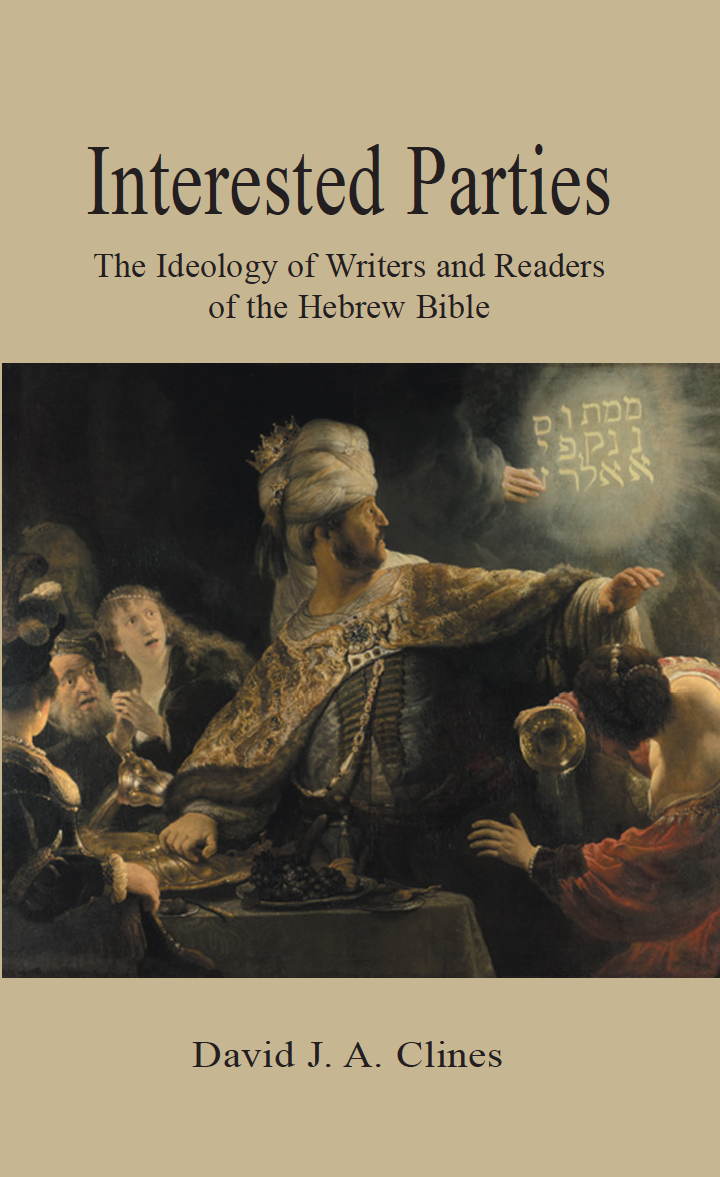
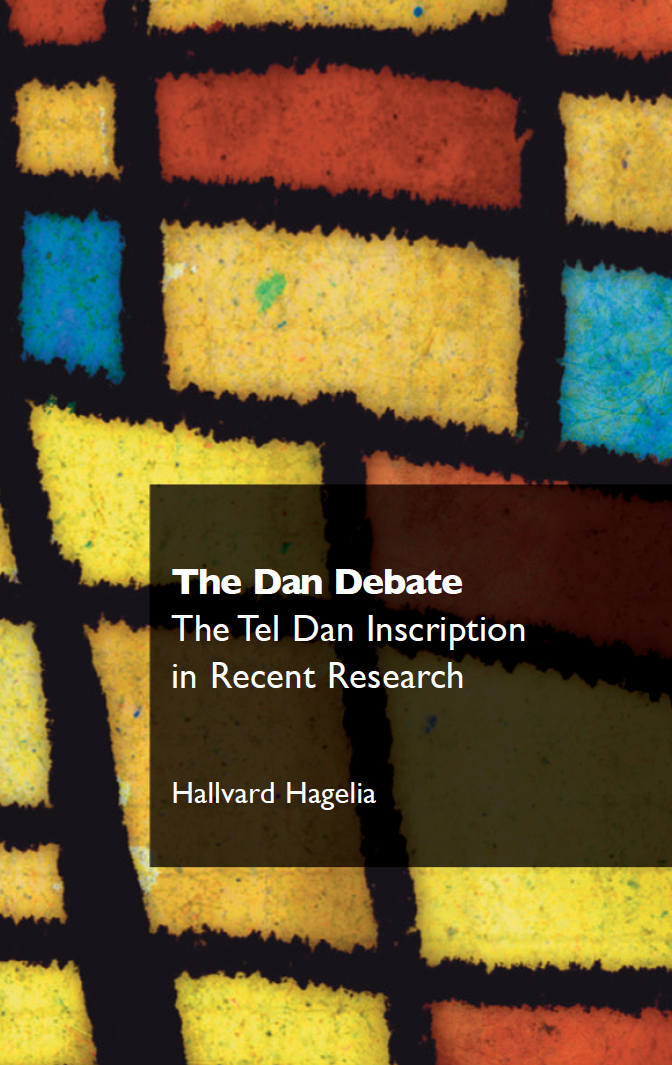





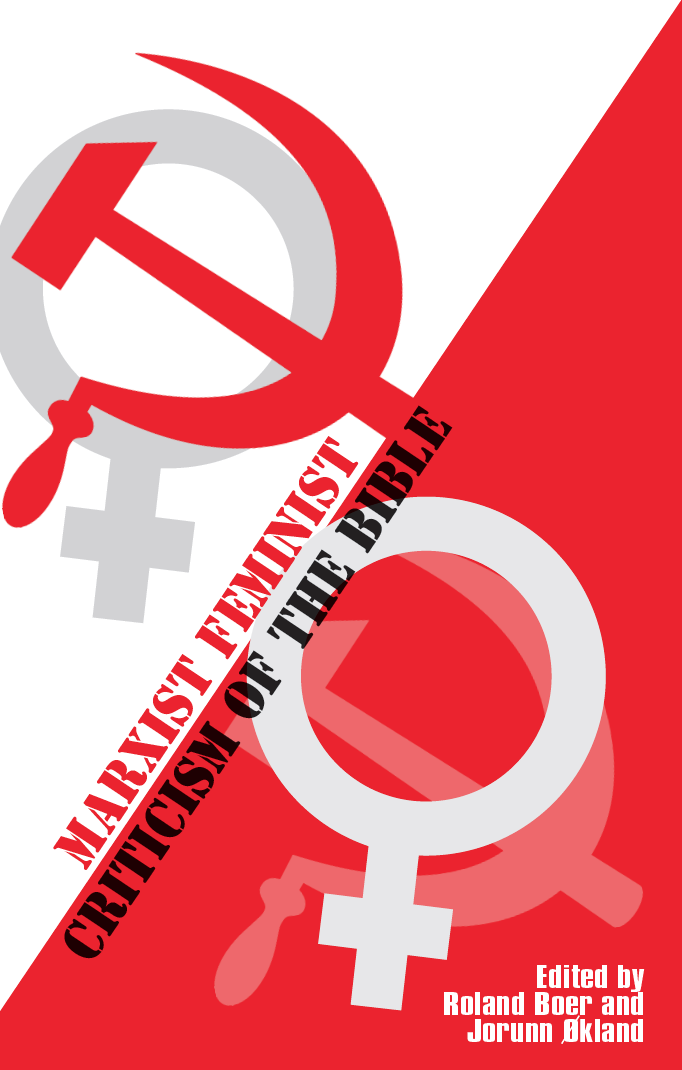

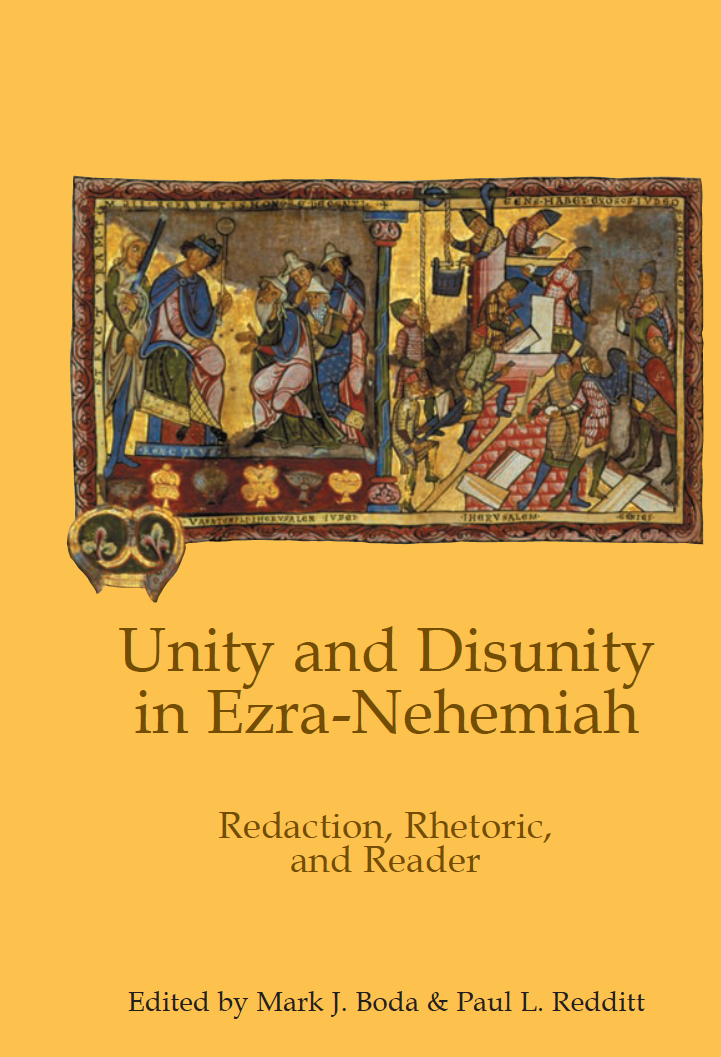
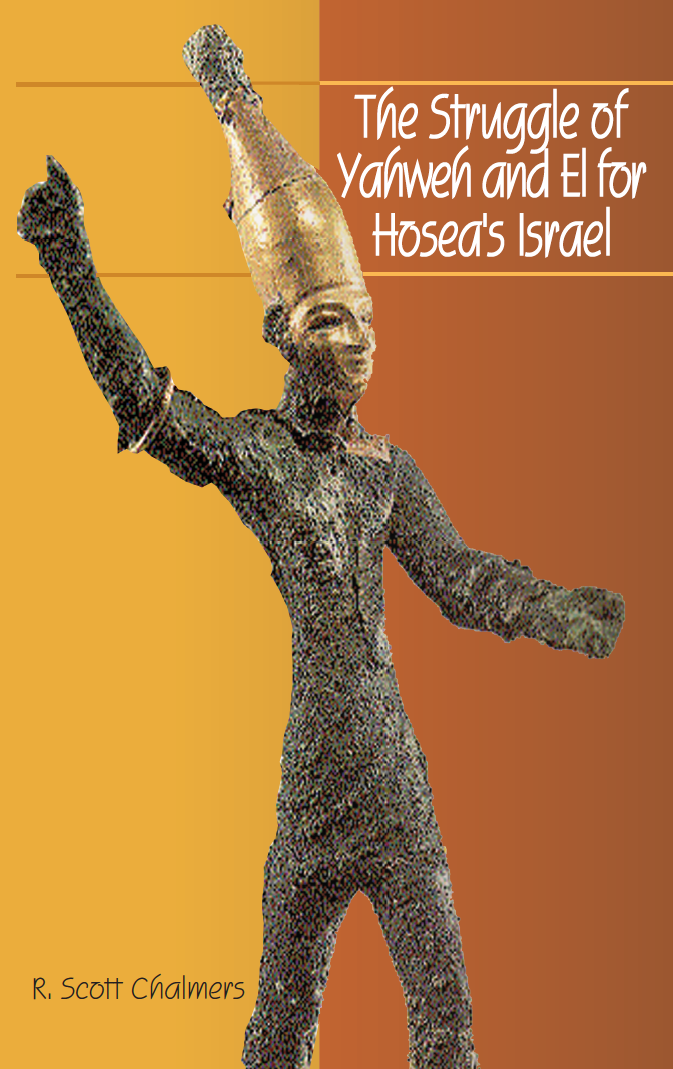
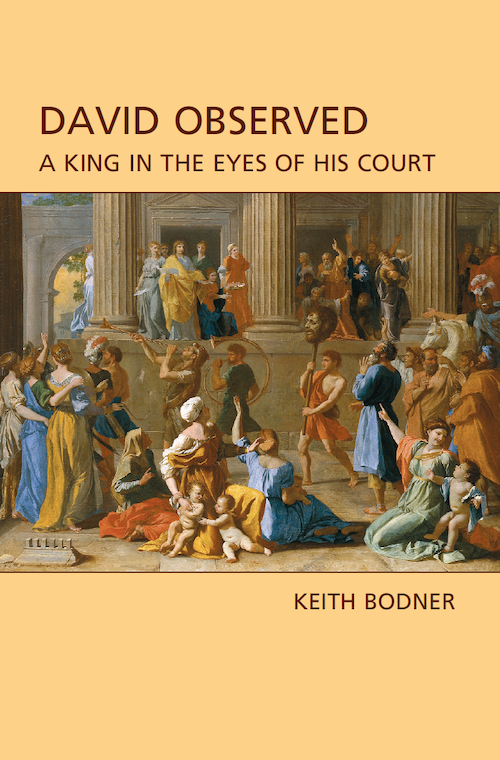
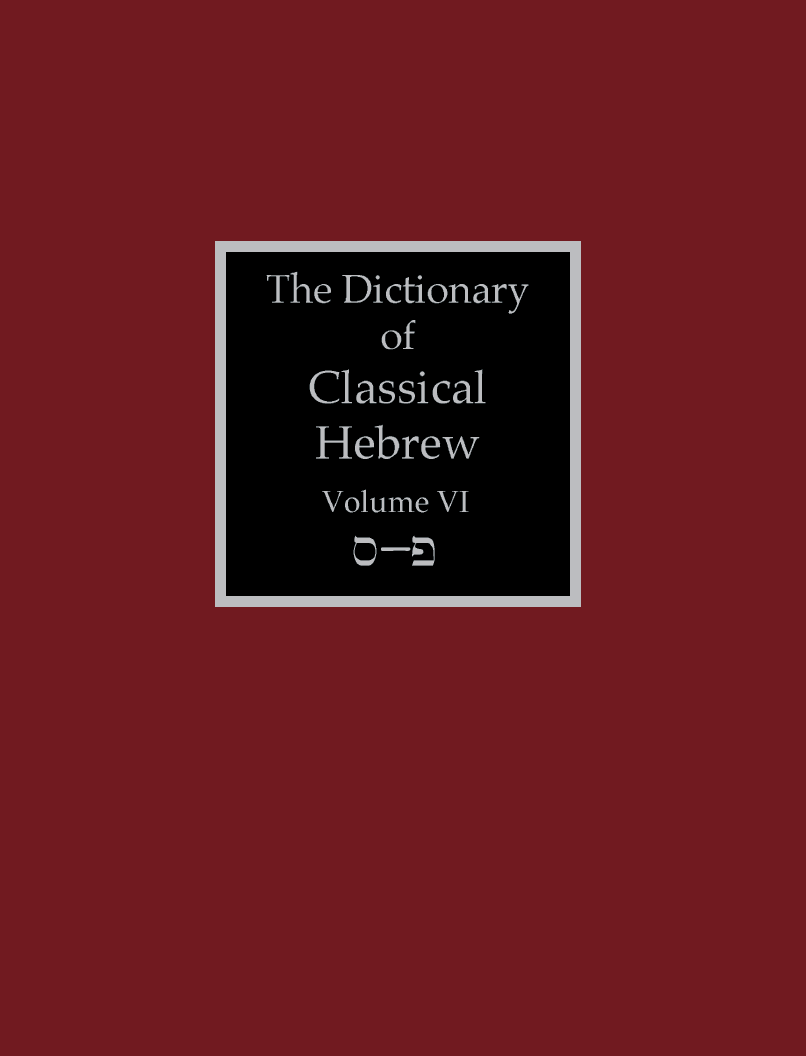
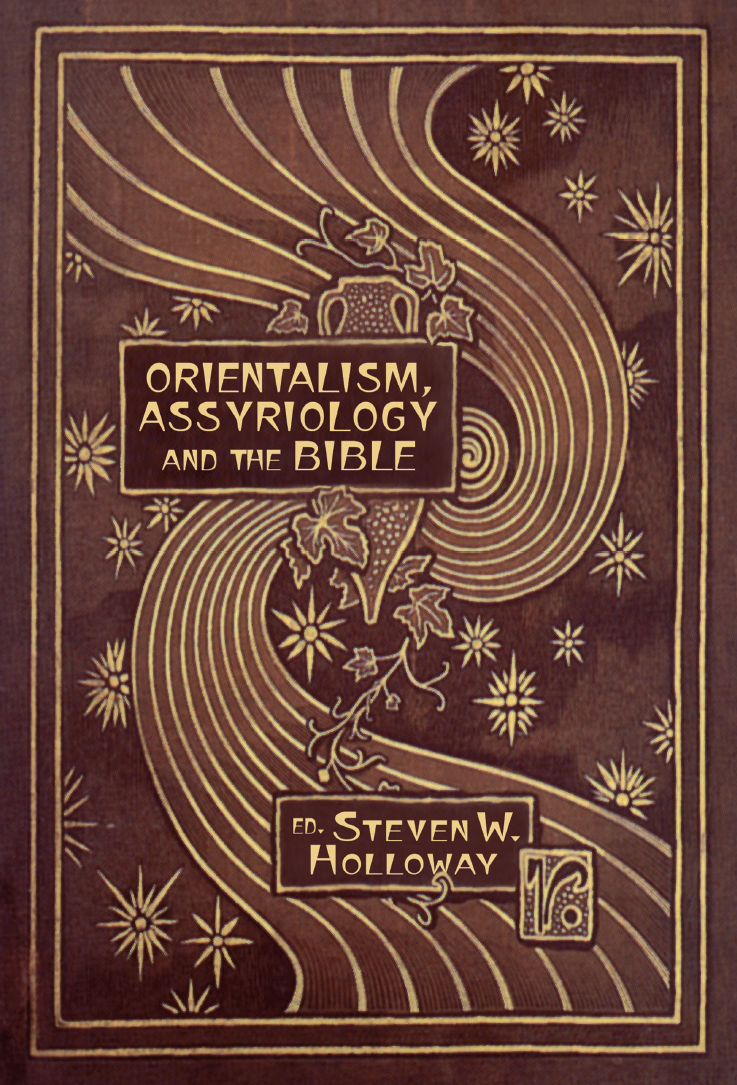
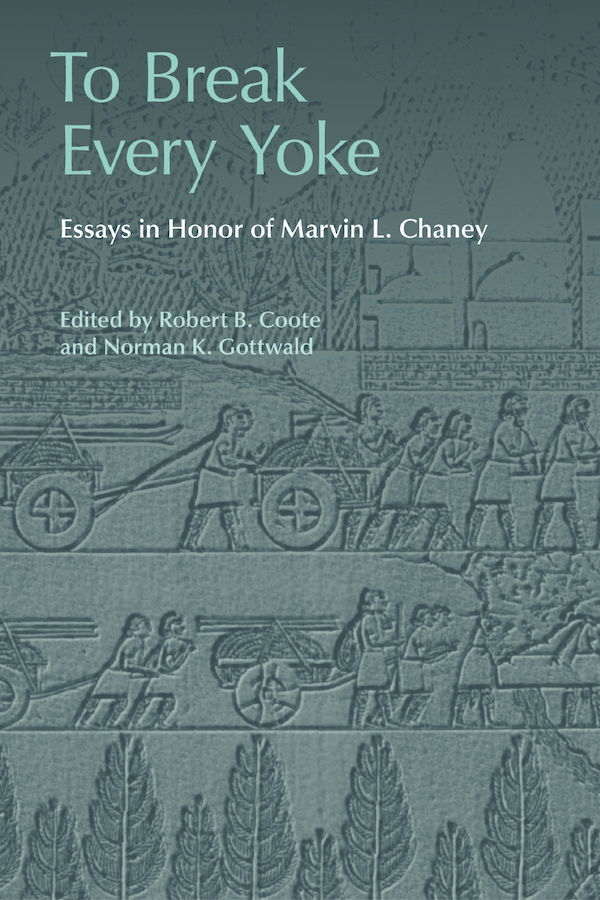
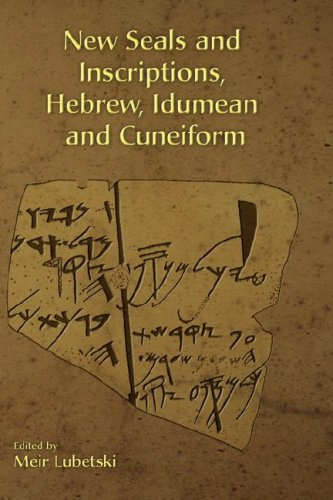
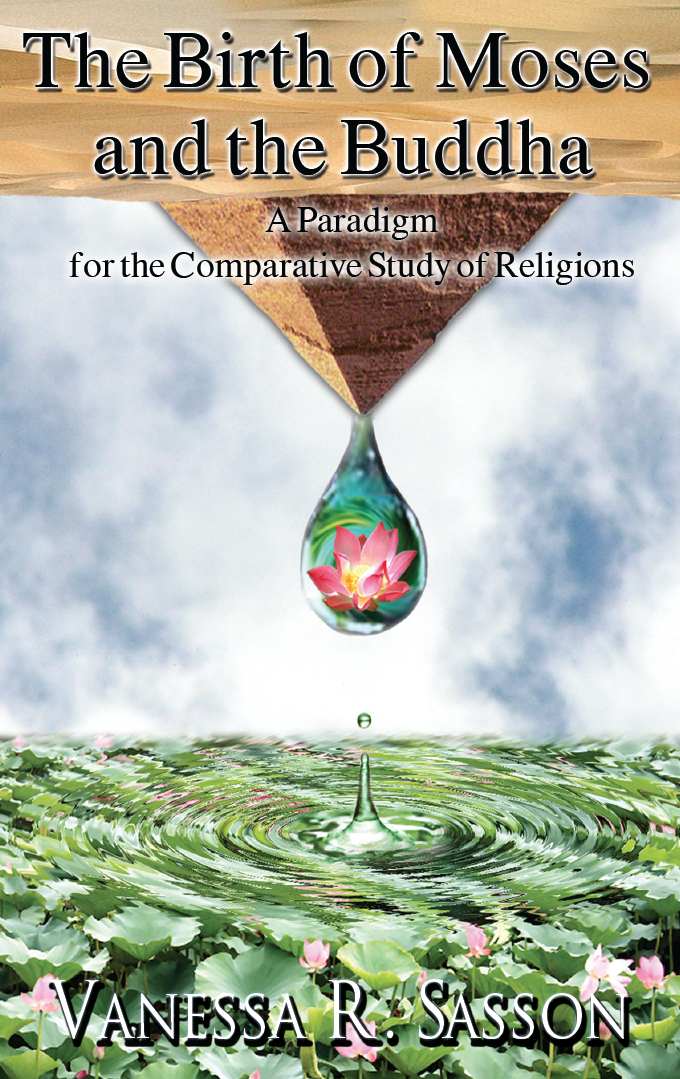
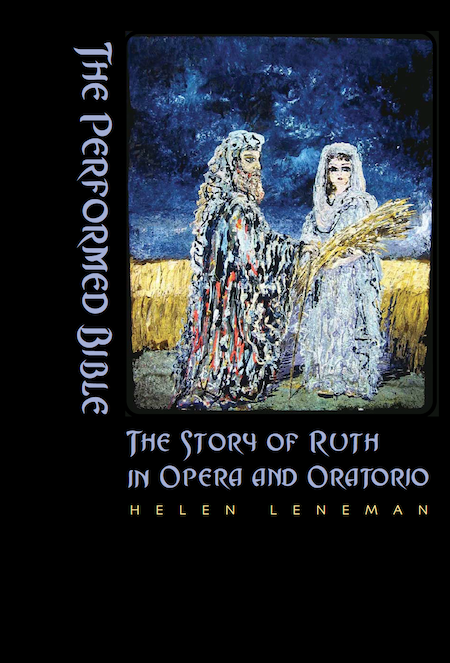

Nahum, Second Edition
Nahum, Second Edition